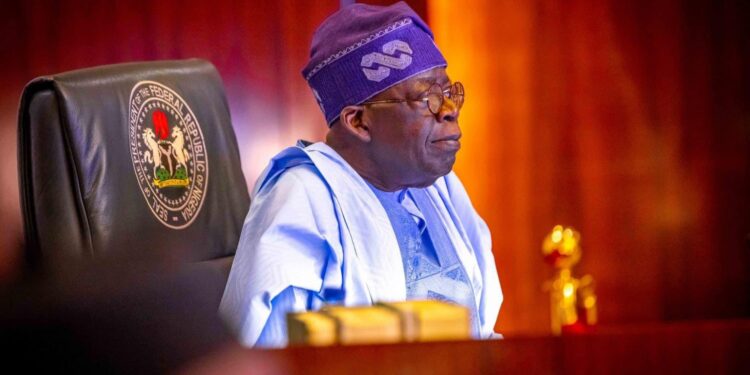President Bola Tinubu, on Monday, defended the four tax reform bills proposed by his administration, describing them as crucial steps to enhance equity, boost revenue, and streamline tax processes in Nigeria. Despite facing significant resistance, particularly from the northern region, Tinubu maintained that the reforms aim to advance the nation’s economic stability and growth.
Speaking at the 7th Annual Senator Abiola Ajimobi Roundtable and the 75th posthumous birthday celebration of the late former governor of Oyo State, Tinubu emphasized the importance of collaboration between the executive and legislative arms of government. The event, held at the University of Ibadan, was organized by the Senator Abiola Ajimobi Foundation in partnership with the university’s Institute for Peace and Strategic Studies.
Represented by the Director General of the Nigeria Institute of Peace and Conflict Resolution, Dr. Joseph Ochoku, Tinubu reiterated the need for unity in governance. “Despite occasional tensions, we recognize that effective governance is a shared responsibility. Collaboration, not confrontation, must define our interactions as we work towards the collective goal of improving the lives of our people,” he said.
Tinubu outlined the objectives of the tax reform bills, stating that their implementation would enhance revenue generation, promote equitable resource allocation, and attract foreign direct investment. “These reforms are pivotal to building an inclusive, prosperous, and sustainable Nigeria,” he added.
The President also expressed his administration’s commitment to protecting constitutional roles and fostering press freedom. “We believe in holding the government accountable. To consolidate democratic governance, we are working to insulate the constitutional functions of each arm of government from divisive sentiments, misinformation, and hate speech,” Tinubu remarked.
Tinubu paid tribute to the late Senator Abiola Ajimobi, praising his legacy in infrastructure, healthcare, education, agriculture, and security during his tenure as Oyo State governor. “He was a visionary leader and a dedicated party man, with whom we formed the All Progressives Congress in 2013 to pursue people-focused development and good governance,” Tinubu said.
Deputy Senate President Jibrin Barau defended the decision to name the National Assembly Library after Tinubu, citing his unique history as a former senator who became Nigeria’s President. “This historic achievement deserves recognition,” Barau stated, emphasizing the importance of legislative oversight as a cornerstone of accountability and transparency in governance.
In his address, Senate Leader Opeyemi Bamidele stressed the need for close cooperation between the executive and legislative arms while upholding the principles of separation of powers. “Effective oversight must respect institutional integrity and foster intergovernmental relations,” he noted.
The event was attended by several dignitaries, including APC National Chairman Abdullahi Ganduje, Imo State Governor Hope Uzodimma, Leader of the House of Representatives Julius Ihonvbere, former Oyo State deputy governors Rauf Olaniyan and Moses Adeyemo, and the Oluwo of Iwo, Oba Abdulrasheed Akanbi.
























